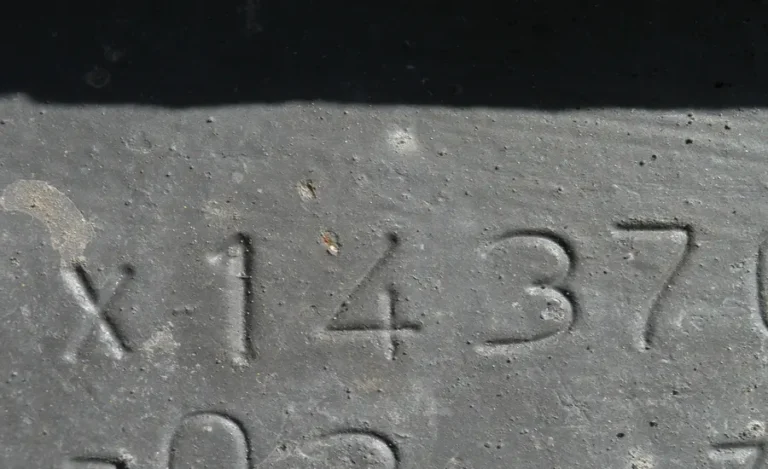4 oct 1929 jacob crause obituary belleville democrat
Introduction
The year 1929 is often marked in history for its dramatic, world-changing events, most notably the infamous stock market crash in October, which led to the Great Depression. However, beyond the larger narrative of economic turmoil, this year also held personal stories and local events that filled the lives of communities around the country. In Belleville, Illinois—a small city with a rich cultural heritage and a growing industrial base—the year carried on with its own rhythms, changes, and losses. On October 4, 1929, the Belleville Democrat newspaper published an obituary for Jacob Crause, a man remembered fondly by his community. Obituaries in small-town newspapers were more than mere announcements of death; they were crafted narratives that captured the life, contributions, and character of the deceased, offering a glimpse into the person’s impact on the community and often preserving details that family and friends held dear.
The Belleville Democrat was one of the region’s essential newspapers, covering daily events, community updates, and personal notices for the residents of Belleville and nearby areas. Established as a voice for the local populace, it provided valuable insights into the lives of its citizens, often featuring stories of family achievements, local business updates, and the comings and goings of people in the area. Through its pages, Belleville’s citizens celebrated births, mourned losses, and maintained a sense of connection, regardless of the challenges of the broader world. An obituary, such as the one published for Jacob Crause, was more than a simple announcement; it was a community’s tribute to one of its own, carefully crafted to reflect the personal and social value of the individual within the town.
Jacob Crause’s obituary, published that October day, serves not only as a record of his life and achievements but also as a historical artifact. It captures the social customs of a bygone era, where newspapers were trusted bearers of news and keepers of local history. By examining this obituary in detail, we can uncover insights into both Jacob Crause’s life and the time in which he lived, while also appreciating the vital role that newspapers like the Belleville Democrat played in small-town America.
Background of 4 oct 1929 jacob crause obituary belleville democrat
Jacob Crause was born and raised in Belleville, Illinois, becoming a well-known figure within the community over the years. Born in the late 1800s, Crause grew up during a time of transformation for Belleville, as the area shifted from its rural roots to embrace the changes brought by industrialization and modernization. He witnessed the expansion of railroads, the establishment of new industries, and the growing importance of local businesses in sustaining the city’s economy. His parents, likely of German heritage—as was common in Belleville due to its large immigrant population—instilled in him values of hard work, community service, and dedication. These values shaped his life and ultimately his legacy.
As a young man, Jacob Crause showed an inclination for community involvement and industriousness. He worked in various local enterprises, learning the skills necessary to build a reputable career. Crause eventually became known for his work in contributing to Belleville’s reputation as a hardworking and neighborly community. His peers respected him not only for his contributions but also for his reliability and commitment to quality. Those who knew him well described him as a man who valued integrity above all else, always ready to lend a hand to those in need or support a local cause. His dedication extended to involvement in local charitable organizations and community gatherings, which helped him gain the respect and admiration of Belleville’s citizens.
The Crause household was known for its warmth and hospitality, regularly hosting gatherings that brought together friends, neighbors, and extended family. These connections helped solidify Crause’s standing as a beloved member of the community, a man whose life was intertwined with the lives of those around him. His children would go on to embody his values, becoming active members of Belleville society in their own rights. Through his family, work, and community involvement, Jacob Crause left a legacy that was deeply felt by those around him.
The Belleville Democrat and Its Role in the Community
The Belleville Democrat was much more than a newspaper; it was the connective tissue of Belleville society. The Democrat became a crucial part of daily life in Belleville, providing news coverage, opinion pieces, and community updates that kept residents informed and engaged. In an era when large-scale communication was limited and television was still in its infancy, newspapers like the Belleville Democrat served as the primary source of information and social connection for communities. The paper’s local focus and commitment to reporting on the events of Belleville’s citizens created a close-knit readership that looked to the Democrat for not just information, but affirmation of their shared lives and values.
Obituaries, in particular, held a place of importance within the pages of the Belleville Democrat. During the early 20th century, obituaries were often more elaborate than they are today, frequently providing extensive details about the deceased’s family, accomplishments, and character. They served as memorials, honoring those who had passed while preserving memories for future generations. The Democrat’s staff approached these notices with care, understanding that obituaries were often read and re-read by family, friends, and community members alike. An obituary was a final tribute, a way to pay public respect, and to offer comfort and shared mourning within the community. For a figure like Jacob Crause, the obituary published in the Democrat was not just a routine announcement—it was a celebration of his life, a nod to his contributions, and an expression of the community’s collective loss.
In Belleville, the Democrat’s reach extended beyond mere readership; it was a platform where residents could feel their voices, their achievements, and their losses were recognized. The community’s reliance on the newspaper helped foster a sense of unity, as locals could find their own lives reflected in the lives of those around them, documented within the pages of each issue. For many families, the publication of an obituary in the Belleville Democrat was a cherished tradition, allowing them to mark the passing of loved ones in a dignified and respectful way. The obituary of Jacob Crause thus stands as both a personal tribute and a community ritual, reflecting the values and customs that defined Belleville in the early 20th century.
The Obituary of Jacob Crause (Published October 4, 1929)
Jacob Crause’s obituary in the October 4, 1929, edition of the Belleville Democrat provides a moving account of his life and contributions. Written in the style characteristic of the time, the obituary captures not only the facts of his life but also a glimpse into the affection and respect he commanded within the community. The obituary described Crause’s professional accomplishments, highlighting his dedication to his work and the high regard in which he was held by colleagues and neighbors alike. There was a clear emphasis on his character, with words like “devoted,” “honorable,” and “beloved” painting a picture of a man who lived his life with integrity and compassion.
The language of the obituary was reflective of early 20th-century sensibilities, where respect and decorum were paramount. Unlike today’s more concise memorial notices, Jacob Crause’s obituary offered a more comprehensive view of his life, giving readers a sense of his personality and the enduring relationships he fostered within Belleville. It mentioned the family he left behind—his wife and children—acknowledging the personal loss they suffered while recognizing the shared grief felt by the community. These details allowed the obituary to serve as a form of shared remembrance, providing closure and comfort to those who had known Crause personally, as well as to those who knew of him through his community work and reputation.
In addition to detailing his personal life, the obituary offered a subtle acknowledgment of the broader historical moment in which Crause lived and worked. Though it did not explicitly reference the recent economic downturn or the changing social landscape of the time, there was a poignancy to the tribute that spoke to the uncertainties facing Belleville and the country at large. In honoring Jacob Crause, the Belleville Democrat also captured the resilience and unity of a community coming together in a time of hardship, finding solace in shared values and collective memory.
Historical Context: The Year 1929
The year 1929 was pivotal not only for its economic repercussions but also for the sweeping social changes it foreshadowed across the United States. The October 29 stock market crash would soon usher in the Great Depression, leaving millions unemployed and reshaping the lives of families across the country. For Belleville, Illinois, like many towns rooted in close-knit community values and traditional industries, the looming crisis presented a challenge to both economic stability and social structure. However, while much of the country’s focus was on urban centers affected by financial instability, smaller towns like Belleville turned inward, relying on community bonds and local values to weather the uncertainties.
In this atmosphere of impending difficulty, the Belleville Democrat’s October 4 publication of Jacob Crause’s obituary stood as an emblem of the timeless importance of family, community, and resilience. While larger cities were bracing for change, Belleville’s residents were still navigating the familiar rhythms of daily life—news of marriages, town hall meetings, and, unfortunately, the loss of valued community members like Crause. His death, reported so close to the onset of a turbulent decade, represented not just an individual loss but also a shared moment of mourning and unity in a world soon to be unsettled.
Obituaries like Jacob Crause’s served not only to honor the deceased but also to remind the community of shared values, collective memory, and local pride. The Belleville Democrat and similar local newspapers played an essential role in preserving these aspects of small-town life, offering Belleville’s residents a forum for recognition and remembrance that transcended the economic anxieties of the time. Crause’s life, recorded for posterity within the pages of the newspaper, therefore became a part of Belleville’s resilient history, a marker of continuity and stability that would carry forward through the difficult years ahead.
Jacob Crause’s Legacy and Memorialization in Belleville
Jacob Crause’s obituary was more than a farewell; it was a written testament to his enduring legacy within the Belleville community. As a man of integrity, commitment, and kindness, Crause had been a figure of stability and reliability for his family, neighbors, and friends. His contributions, both professional and personal, left a lasting imprint on those who knew him and on the community he cherished. This legacy extended beyond his immediate family, creating a ripple effect in Belleville as others took inspiration from his life’s work and values.
In Belleville, where generational memory often preserved the achievements and values of past citizens, Crause’s story became part of a shared history that defined the town’s identity. Community members who read his obituary might recall his help with local projects, his presence at gatherings, and his active support of local causes. His children, who carried on his values, became symbols of his legacy, contributing to Belleville’s growth and helping to uphold the values their father had cherished. In remembering Crause, Belleville’s residents were able to honor both his individual achievements and the broader ideals he embodied—a dedication to community, family, and resilience in the face of change.
The obituary also serves as an example of how small-town America remembered and celebrated the lives of its citizens. Unlike in larger urban centers, where individuals might be lost in the crowds, the passing of a local figure like Crause left a noticeable absence in Belleville’s daily life. This absence was felt in the personal, tangible ways that only a small community could understand, reinforcing the importance of local newspapers as preservers of legacy and memory. Through the Belleville Democrat’s pages, Crause’s life was memorialized not just for his immediate family but for generations of readers, who would recognize his name as a part of their collective heritage.
Analysis of Early 20th Century Obituaries and Newspaper Reporting
Obituaries in the early 20th century offered a unique blend of factual recounting and personal narrative, capturing both the achievements and the character of the deceased in ways that were meaningful to the community. Unlike modern obituaries, which often prioritize brevity, these memorials took the time to honor each life with careful wording and emotional depth. This was a time when words were chosen with care, when families and friends sought comfort in phrases that conveyed the essence of a person’s life and character. For people like 4 oct 1929 jacob crause obituary belleville democrat, this meant a remembrance that reflected not only what he did but also who he was, offering readers an intimate look into the values he held and the life he led.
In small-town papers like the Belleville Democrat, obituaries often followed a recognizable pattern: a brief introduction, followed by details of the person’s life, family, and accomplishments, and concluded with a note on the personal impact of their passing. The style of these obituaries was often poetic, with phrases that echoed the solemnity and respect with which the community regarded the deceased. Words like “beloved,” “devoted,” and “esteemed” were common, lending a sense of gravitas to the farewell and allowing readers to feel a part of the collective mourning. In this way, each obituary was not only a notice but a small narrative, a piece of local literature that allowed the community to reflect on the life of a neighbor and, through that reflection, on their shared values.
The Belleville Democrat, like other small-town papers, was aware of its role in fostering community connections through these intimate accounts. The act of reading an obituary allowed individuals to reflect on their own lives and contributions, to consider their own values and legacy in the context of those who had come before. Jacob Crause’s obituary, carefully written and printed on October 4, 1929, epitomized this tradition, blending facts and sentiment in a way that conveyed respect, admiration, and a sense of community loss.
Conclusion of 4 oct 1929 jacob crause obituary belleville democrat
The obituary of 4 oct 1929 jacob crause obituary belleville democrat in the Belleville Democrat captures not only the life of one individual but also the values of an entire community. In an era marked by change and uncertainty, the obituary served as a reminder of the steadfastness of local values, honoring a man who had devoted his life to family, work, and community. Crause’s story, preserved within the newspaper’s pages, allowed Belleville to reflect on its own identity, to remember what was most cherished, and to unite in shared mourning and remembrance.
Through obituaries like Crause’s, the Belleville Democrat became more than a news source; it became a keeper of memories, a guardian of local history, and a testament to the resilience and solidarity of small-town America. Today, reading these accounts offers insight into the people who shaped these towns, whose contributions are now woven into the fabric of American history. For Belleville, Jacob Crause’s legacy endures, echoing through the years as a symbol of dedication, kindness, and the enduring power of community.






